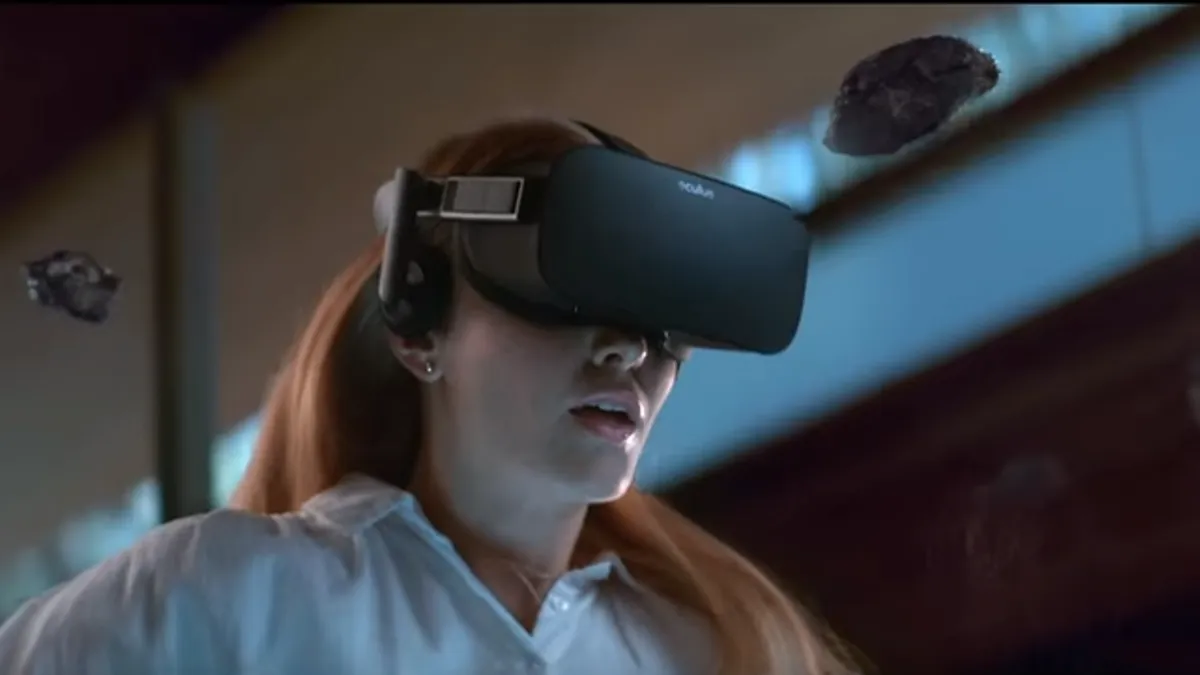Dive Brief:
- Facebook's Oculus division has tapped a new agency of record, Space Camp, to promote its Oculus Rift virtual reality (VR) gear and launch its first global advertising campaign, reported Adweek. Facebook last week announced an expansion of its Oculus VR products that added two new headsets, including a lower-priced, mobile-first offering called Oculus Go.
- The Space Camp campaign will be targeted toward gamers, an already popular segment with the technology, and "Step Into Rift" will have spots in North America and Europe in English, French and German. Adweek suggested that there are plans to expand to a more mainstream audience once the gamer segment has been saturated.
- Facebook also recently rolled out a new 3-D media type for its News Feed that can be created via Oculus Medium, the division's content creation platform, or with Spaces, Facebook's VR platform. The format lets users interact with cartoon-like objects on both mobile and desktop, and Business Insider Intelligence, the publisher's research service, speculated 3-D posts could spur greater VR adoption with Facebook users.
Dive Insight:
Facebook made a big bet on VR when it acquired Oculus for $2 billion three years ago, but the audience has remained both small and niche, largely consisting of gamers and bleeding-edge tech enthusiasts. Continued slashing of Rift prices — there were two cuts in the past year, before the new product announcements last week — has clearly done little to drive sales or adoption.
By pumping extra marketing behind the new hardware rollout, and launching Oculus Rift's first global ad campaign, Facebook clearly has no plans of giving up on VR, though it's smartly peeling back its ambitions to hone a focus on gamers as opposed to positioning its product as primed for the mainstream. The 3-D posts, for their part, might draw more mainstream interest in the meantime and open up greater opportunity for marketers to develop VR-ready content.
For brands, augmented reality (AR), VR's sister technology, has become far more appealing in that it doesn't require cumbersome hardware or linking to PC to operate, which "true" VR often does. The explosive popularity of apps like Pokemon Go and Snapchat has also underscored how AR can more easily tie to the real world in a way VR often can't. Facebook's 3-D posts, by living on the core News Feed, might help remove some of those barriers and surface robust marketing use cases, especially around branded content, per Business Insider. Oculus Go, in catering to mobile, takes a page from the palm-of-your-hand accessibility of AR as well.














